Rounders
The popularity of rounders is increasing and it’s already among the top three most played team sports – ahead of cricket and rugby
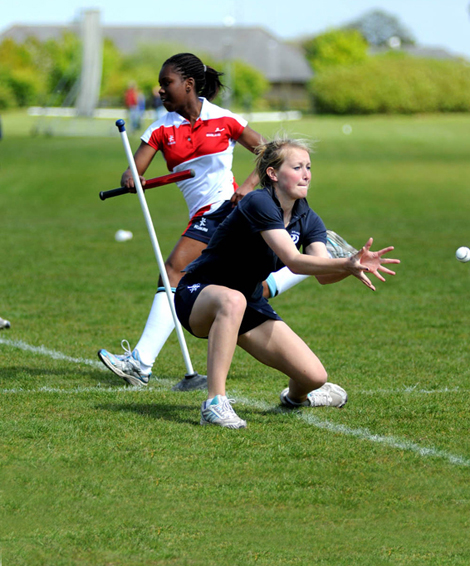
Rounders, with roots dating back to Tudor times, is currently played by around 24,000 adults (around 70 per cent of whom are women) at least once a week and nearly 70,000 play once a month according to Sport England’s Active People Survey*. Research by the Women’s Sport and Fitness Foundation (WSFF) also highlights that rounders is played in the majority of UK schools (87 per cent) and is in the top 10 most participated school sports. It ranks in the top three most popular team sports, ahead of netball, cricket, tennis and rugby.
The challenge Rounders England, the National Governing Body (NGB), has faced is the high level of drop off from young people, most significantly after leaving primary school (29 per cent), at the end of Year 9 (11 per cent) and Year 11 (29 per cent). According to the 2012 Rounders England School Pupil Survey 72 per cent of pupils who no longer play rounders said they would like to play if they had been given the opportunity. A focus for Rounders England in recent years has been the need to establish a nationwide infrastructure to provide playing opportunities outside of school.
Participation at higher education establishments is increasing, mainly due to Sport England’s Active Universities initiative where 19 universities received funding to offer rounders and data from the public body shows that 91 per cent of latent demand comes from those under 35. Of the 16,300 people who would like to participate in Rounders more often, 78 per cent are not participating regularly, which highlights a significant new market for the sport.
From school playing fields to National Governing Body
Formerly known as the National Rounders Association, the NGB has come a long way since it was originally formed by a small group of teachers in 1943 with the aim of standardising the rules. Thanks to £2.2m funding from Sport England, the organisation implemented its Whole Sport Plan 2009-13 and rebranded as Rounders England to project a more professional and modern organisation.
The current board structure reflects the sports development priorities of its whole sport plan and it has invested in three regional relationship managers.The regional managers are responsible for creating successful partnerships with local organisations to deliver rounders programmes in their area – these could be universities, volunteers, local authorities, county sports partnerships, leisure facilities or young people’s groups. These programmes are then linked to the club network and leagues to encourage sustainable play.
Engagement programmes
Alison Howard, CEO of Rounders England, explains: “Rounders appeals to a broad spectrum of people, including beginners and those returning to the game, thanks to the sociable aspects and the informality the game offers. We have built on the appeal of it being a simple, inclusive and fun activity. From this we’ve created a number of initiatives to bring new participants to sport, not just create a shift of those already playing sport, transferring sports or starting a new sport.”
The ‘Smile it’s Rounders’ online toolkit, which can be downloaded from www.roundersengland.co.uk, has been designed to reach three distinct audiences; parents, students and the corporate workforce. Through tailored messages about playing opportunities, the toolkit comprises four key elements – Chuck It, Whack It, Leg It, Smile! – and gives players information on how they can get started and the basic rules.
Return To Rounders, like other successful NGB engagement campaigns such as Back To Hockey, encourages more women and girls to come back to Rounders. This includes women and girls who have not played since they left school, or who have never played before but with the overall objective of encouraging more people to play more often.
To help broaden the appeal of the sport, Indoor Rounders was established outside the traditional playing season of March to October. Successful partnerships have been set up with leisure centre chains across the country and to support this, training has been delivered to staff to act as Rounders Activators so they can facilitate indoor games.
The primary focus for Rounders England Activators is to raise awareness and drive interest for organised sessions. Alison Howard says: “Our Activators embody real drive, passion and enthusiasm when it comes to encouraging adults and families to get involved. By exploiting social media channels such as Facebook and Twitter, we’ve seen fantastic examples of the invaluable work these volunteers carry out within their local communities.”
Encouraging more children into the sport
Rounders England works with the charity Youth Sport Trust to provide physical literacy programmes for primary school children so they can grasp the basic skills such as balance, agility, movements, throwing, catching and running.
At secondary school pupils can take part in Rounders Young Leaders courses and Rounders England also works with groups such as Street Games and Us Girls to provide play opportunities outside the school curriculum. There are opportunities for young people to become UKCC L1 Rounders coaches from the age of 16 and to become officials from the age of 14.
Inclusive Rounders
An increasing number of people with disabilities are playing rounders, and the NGB ensures that the sport can be adapted to make it accessible to all. After a successful pilot in 2011, the first of its kind in the country, the first wheelchair version of the game took place. This was rolled out to selected schools across the country and now provides a valuable opportunity to those young people who may have to overcome huge barriers to access quality sports activity.
The competitive game
Rounders England has a developing player pathway which can be entered at any stage, but commonly, adult players aged 16 and over begin by accessing a start-up rounders opportunity, for example a festival or a short rounders activity programme. From here they can progress to playing in a team or a club, often in a league structure. Opportunities also exist to progress to the performance level regionally and nationally, the pinnacle being selection for the England squads.
There are four England women’s squads (U14, U16, U19 and Seniors) that all play regular competitive fixtures against Wales, Scotland, the Channel Islands and the Isle of Man and participate in overseas tours to various places including Greece and Dubai.
Facility strategy
Unlike other NGBs, it is not the intention of Rounders England to have purpose-built facilities. Howard explains: “Our grassroots activities encourage an informal style of play. The beauty of rounders is that you can set up a game virtually anywhere there is an open space, be it the park, beach or village green. For more formal play opportunities, we engage with schools, local authority pitches, private sports clubs, hockey pitches, rugby pitches – anywhere that is big enough for a pitch.
“We also work with Sport England’s facilities teams to include participation in rounders in any new sports facilities, both indoor and outdoor.”
Reaching new audiences
Over the last year, Rounders England has worked with several organisations to gain a significant amount of insight in relation to its consumers and the market. It has also analysed internal membership data, surveyed club members, member schools, school students, coaches, umpires and university students. Through its work with the WSFF, it has developed a strategic plan running from 2013 until 2017 to ignite the passion for rounders by targeting increased and sustained nationwide participation in the sport.
The organisation has been successful in securing investment from Sport England for the period 2013-17 to support three key outcomes; increase in once a week participation among the 14-25 and the 26+ age group as well as increase in people with disabilities playing rounders.
Howard concludes: “We have some very exciting opportunities ahead of us and I hope by increasing the participation of women in rounders, we will see more women benefiting from physically active lifestyles. We’re working hard to create more opportunities for women to play and I hope that if they try our sport and enjoy it, they will be inspired and confident to try other sports and physical activities.”

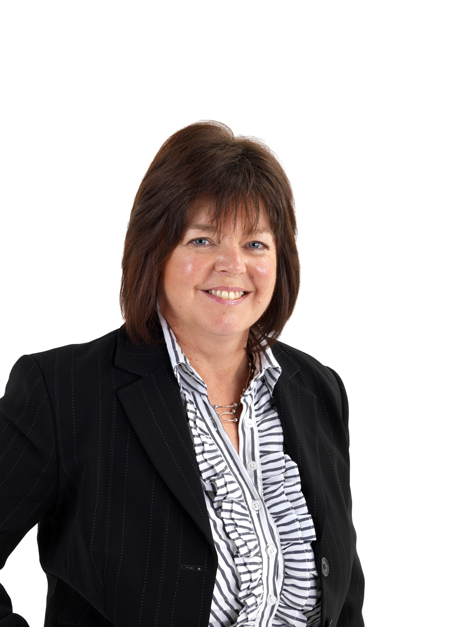
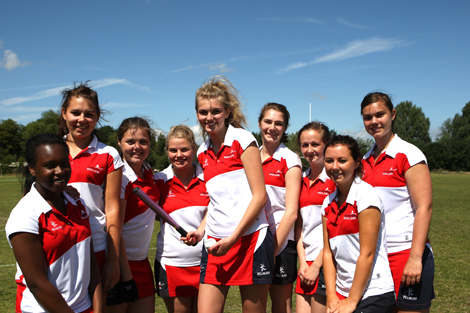
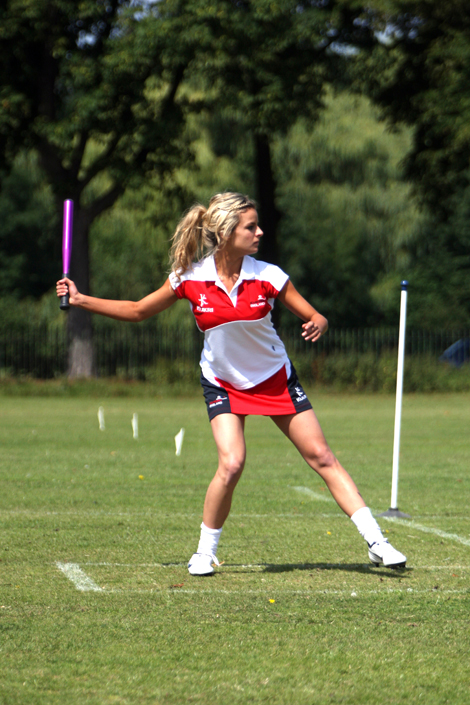
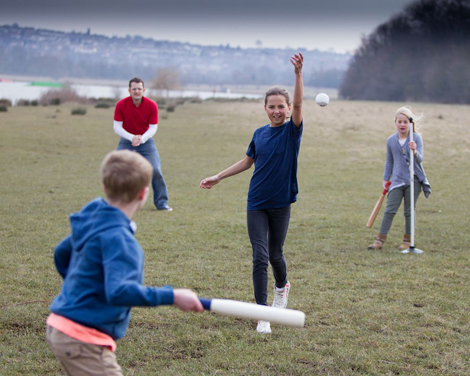
Centre Manager
Director of Operations
Fitness Motivator
Recreation Assistant/Lifeguard (NPLQ required)
Membership Manager
Recreation Assistant
Duty Manager (Dry)
Swim Teacher
Swim Teacher
Chief Executive Officer, Mount Batten Centre
Swim Teacher
Swimming Teacher
Swimming Teacher
Company profile
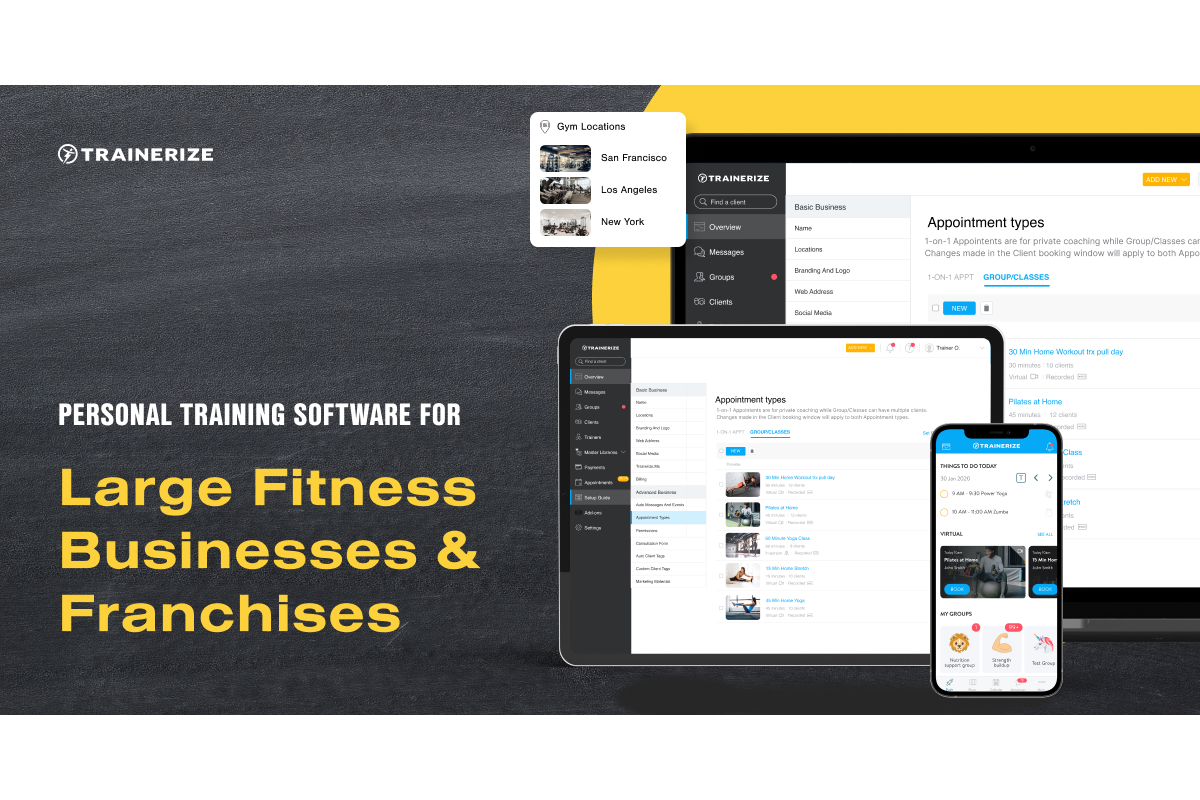
Featured Supplier

Property & Tenders
Company: Knight Frank
Company: Belvoir Castle
Company: AVISON YOUNG
Company: London Borough of Bexley
Company: Forestry England














